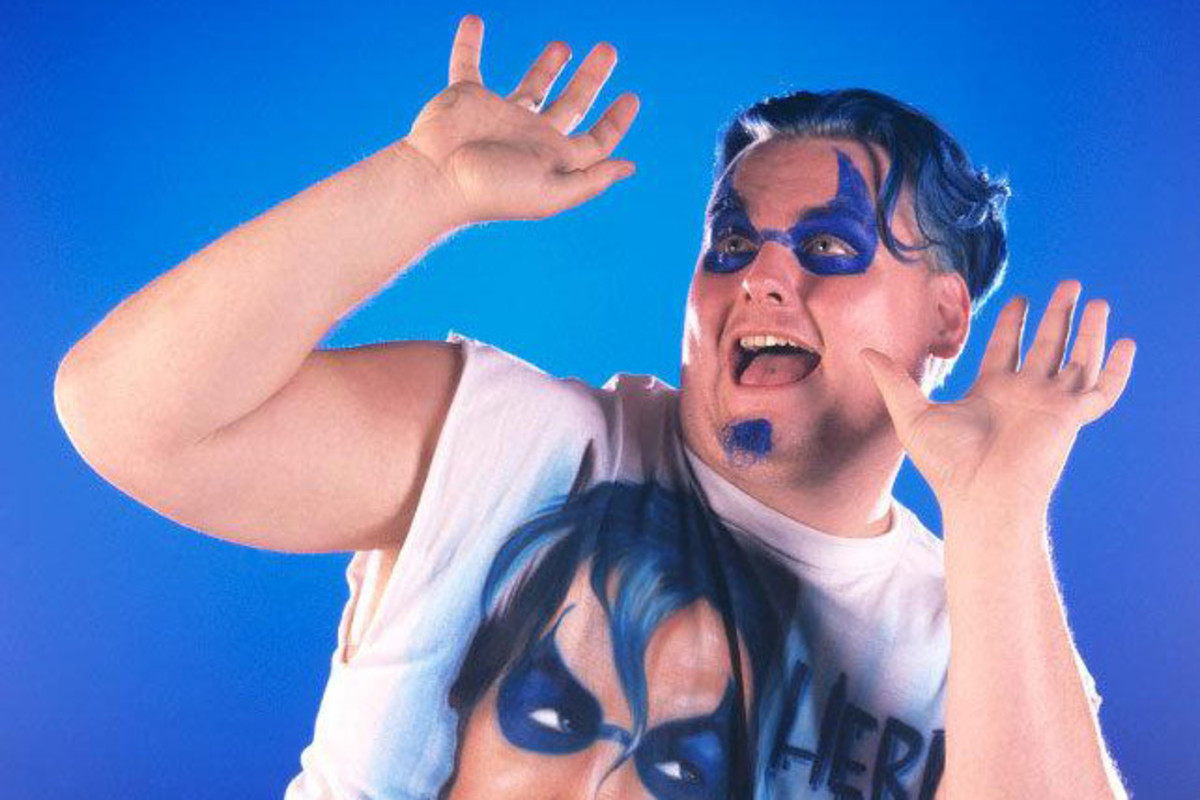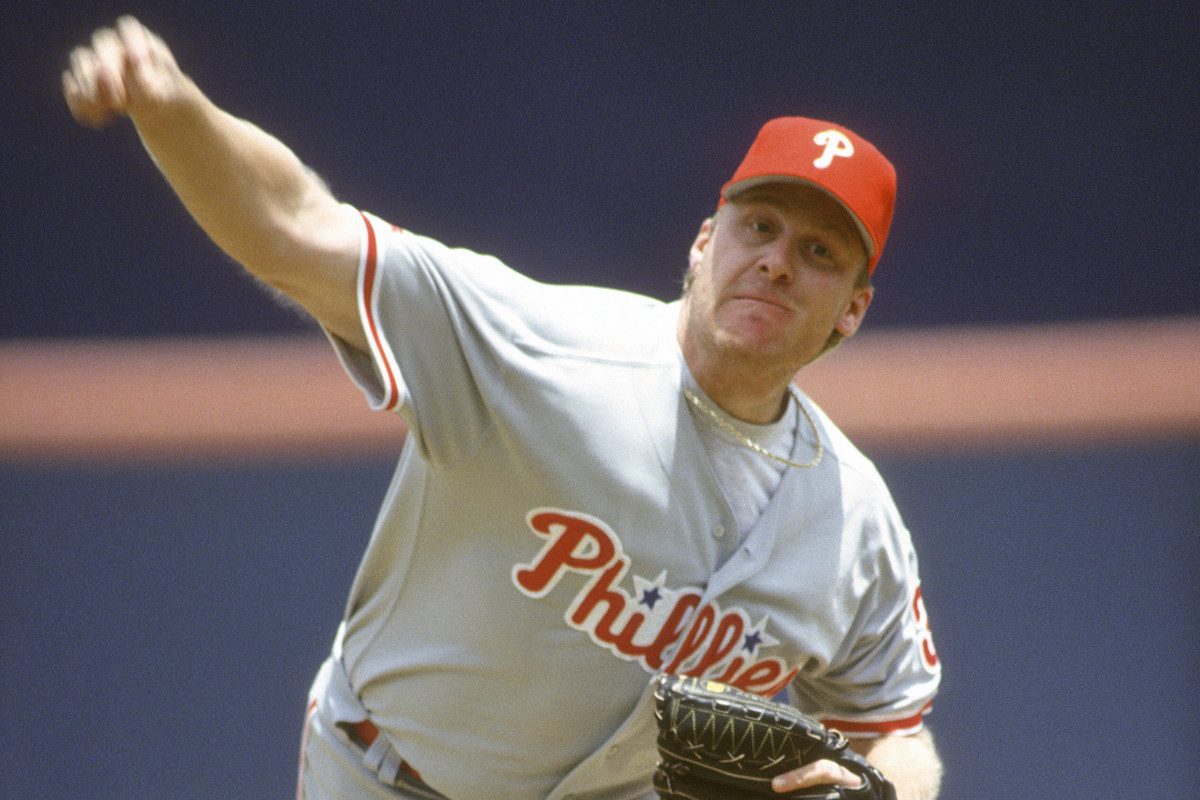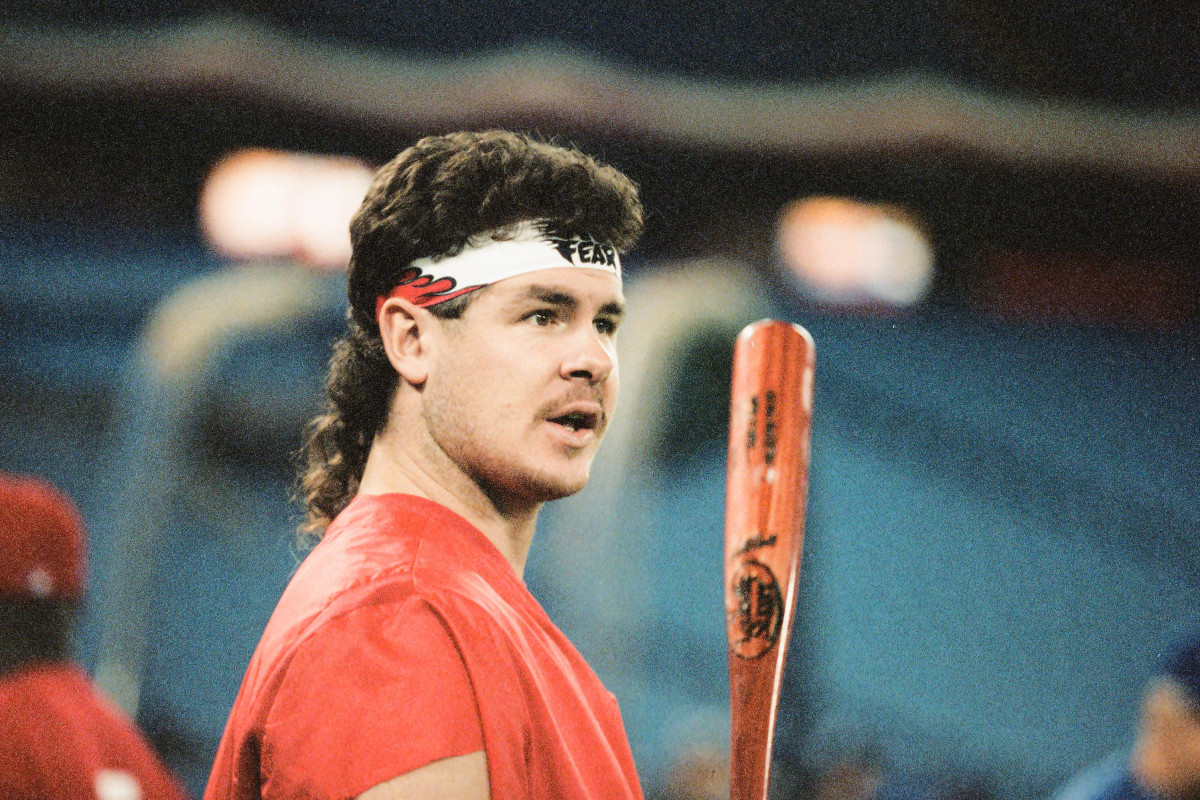The Shoot with the Blue Meanie: Who knew ECW was a baseball team?

My name is Brian Heffron, but I am better known to the world of professional wrestling as former ECW and WWE performer The Blue Meanie.
Right off the bat, I will tell you I’m from the city of Philadelphia, Pennsylvania, and unapologetically a homer when it comes to my city and our sports teams, which includes the Eagles, Sixers, Flyers, and the Phillies.
My fellow Philadelphia faithful are a passionate yet well-studied group of sports fans. Philadelphians are well steeped in our sports knowledge. We are passionate and sometimes our passion is mistaken as being loud and obnoxious.
If you’re not pulling your weight or holding up your end of bargain in the playing field, we will let you know about it. So it’s no surprise whatsoever that in 1992, when a small independent wrestling company founded by Tod Gordon called Eastern Championship Wrestling rose from the ashes of its predecessor Tri-State Wrestling Alliance, that the passion from Philly sports fans bled over into the world of professional wrestling.
After all, how could it not? Just like opposing teams tremored at the thought of facing the Flyers at the Spectrum or the Eagles at the Vet, professional wrestlers were often thrown off their game when wrestling at the Philadelphia Spectrum for the WWF or at the Civic Center for the National Wrestling Alliance because the fans were genuinely unpredictable.

Long before it was made cool, we cheered the villains and booed the good guys. Much like the tale of how Philadelphians booed Santa Claus or pelted the Cowboys with snowballs, our wrestling fans had a reputation. That reputation showed and, in some ways, was part of the charm of Eastern Championship Wrestling as it carried over to its relaunch as Extreme Championship Wrestling.
Essentially, ECW was Philadelphia’s fifth sports team in the eyes of its fans. When I reflect upon Extreme Champion Wrestling, I cannot help but be reminded of another treasured Philadelphia sports team. To me, in my mind, ECW was the wrestling equivalent of the 1993 Philadelphia Phillies. Much like ECW, the ‘93 Philadelphia Phillies were a ragtag bunch of misfits banded together that exceeded all expectations.
Neither ECW nor the ‘93 Phils were pretty, nor were they poster children for their chosen professions. Both could be considered the land of misfit toys, mixed in with a little bit of the Johnstown Chiefs from the movie Slap Shot. Both were filled with character… and a very infectious, lovable wild personnel of characters. Rosters full of bruisers, studs, beards, mullets, torn outfits, scrapes, and misfits. Just like the Phillies, ECW had its own share of bat swingers as well… just with barbed wire.
The ‘93 Phillies had finished in absolute LAST place in 1992. Most experts had predicted the same fate for 1993. They could have taken those words as gospel and packed it in. But they didn’t. ECW was full of local, upstart talent cast off from WWF and WCW because the belief was they weren’t aesthetically pleasing or up to snuff talent-wise. Those talents could have found comfort in just working independent promotions, but luckily for them, there was ECW.
Let’s look at those respective rosters. When I look at the Phillies’ mullet-haired first baseman and home run hitter John Kruk, I see Balls Mahoney. Those were two big bearded sluggers.
When I look at Jim Eisenreich, who was possibly the only sane man on the Phillies roster, I see Lance Storm. Despite their talent at their respective professions, both were also blessed with extreme intelligence.
When you look into the eyes of veteran pitcher Larry Andersen, you see hardcore legend Terry Funk. Both were veterans and colorful characters that commanded respect from their locker rooms.

When I see Curt Schilling, I see “The Franchise” Shane Douglas. Those are two blonde-haired technicians who were, naturally, the franchise players.
Phillies’ catcher Darren Daulton reminds me of The Sandman. Those were two mainstays who were extremely popular with their fans bases, and both of those men could also enlighten you on UFO’s and Bigfoot.
When I see Lenny Dykstra, I see Chris Candido. Dependable and you knew you were going to a solid performance. For comic relief, I’d put myself as the renowned team mascot, the Phillie Phanatic. The Phanatic is a large, furry green creature, and I am the Blue Meanie. You could bring me out to lighten the mood depending on the situation. I could go on and on in casting this straight-to-the-WWE Network production. Both rosters were each the underdog who caught lightning in a bottle and took their respective fields by surprise.
Ultimately, the Phillies shocked the baseball world by beating the mighty Atlanta Braves to win the National League pennant in 1993 to advance to the World Series. ECW took a huge step into the world of pay per view with their debut event of Barely Legal. That pay per view was the equivalent to the ‘93 Phillies game six victory over those powerhouse Braves. The feeling was electric. Many, including myself, shed a tear at the accomplishment.
But there was more to be accomplished. The Phillies had to battle with the defending Major League Baseball world champion in the Toronto Blue Jays. The Jays had the experience and were a well-oiled machine built through free agency. ECW took its “World Series” jump when it set foot in the world of pay per view, which was only supposed to be for the heavyweights like WWF and WCW, during wrestling’s hottest period that would be the “Monday Night Wars” era.
The Jays were a lot like WCW. Both offered tremendous rosters that were signed up as free agents. Since ECW had already successfully gambled on the risk of going on pay per view, they then had to risk going national with a new television deal. ECW made a deal with The Nashville Network, which would become The National Network and then finally settle as Spike TV.
The ‘93 Phillies held their own against Toronto. They fell slightly behind in the series, trailing three games to two, and they played game six at the Sky Dome in Toronto with the hope of winning and forcing a decisive game seven.

In game six, the Phillies had a one run lead, 6-5, after eight innings. Phillies manager Jim Fergosi pulled the pitcher, Roger Mason, to go deeper into his bullpen, and he opened the ninth inning with closer Mitch Williams.
Fergosi did what he thought should be done to secure a Phillies win and move forward to the next game. You should be able to trust your closer, right? Even though Mitch Williams’ nickname was “Wild Thing” and he was known to be unpredictable, he was who the Phillies skipper thought was the best choice.
Going national is what the ECW skipper Paul Heyman thought was best for ECW. He eventually decided, instead of sticking to syndicated television and pay per view, to signal to the bullpen and call in TNN. After all, national television would help ECW advance to the next level. Right? Seemed the logical choice, just like Fergosi going to Mitch Williams in the ninth.
But it was not to be. The TNN television deal turned out to be poison. What should have brought ECW to the promised land wound up draining the company financially and led to its demise. As for the Phillies, Mitch Williams took the ball with a one run lead, but with two on and one out in the ninth, the “Wild Thing” threw Joe Carter a pitch that was crushed for a three-run homer and buried the ’93 Phillies’ Cinderella run.
Of course, a notorious ECW tag team, the Public Enemy, wore Toronto Blue Jays hats and jerseys to the ring at the next show at the ECW Arena. Years later, I received the chance to work for the WWE at the Toronto Sky dome twice. I’d be lying if I didn’t say I spent most of my time in the stadium staring at the spot Joe Carter’s ball escaped the park, wondering what could have been if Fergosi had left Mason in the game. Just like I wonder what would have happened had ECW stayed in business.
Follow SI Wrestling on Facebook
Follow

The end of ECW didn’t seem real, and it didn’t seem right. The company was still drawing and had overcome so many obstacles. ECW was the little engine that nearly did, much like the Phillies had gone from dogs in the standings to the darling in Philadelphia.
Philadelphia definitely felt the hurt of losing both the ‘93 World Series and the death of ECW. Though both never made it to the promised land, they remain loved and adored to this date. Fans wax poetic of that magical time and how you’d never see something like that in this or any lifetime. The Phillies eventually won the World Series in 2008, and independent wrestling eventually made a strong return to Philly.
Yet nothing can properly replicate those awesome eras.
